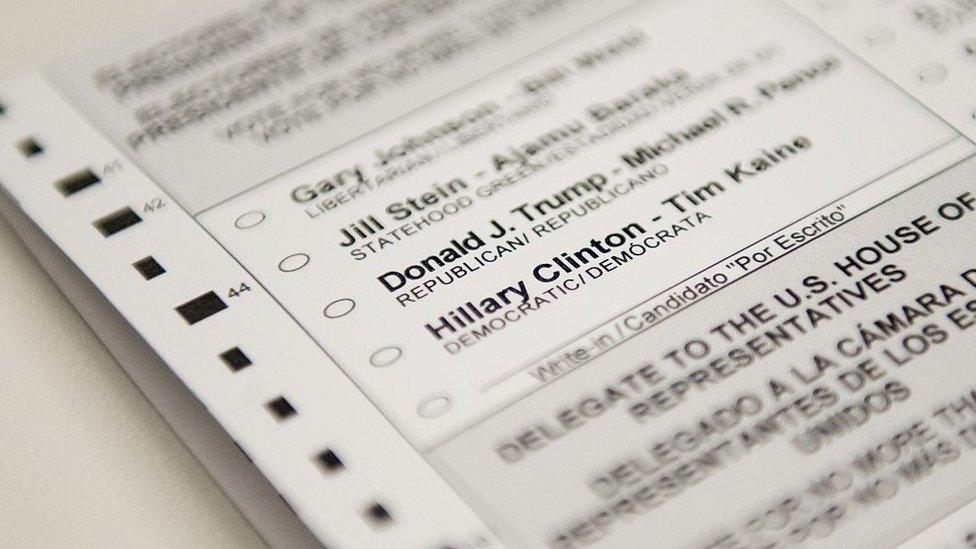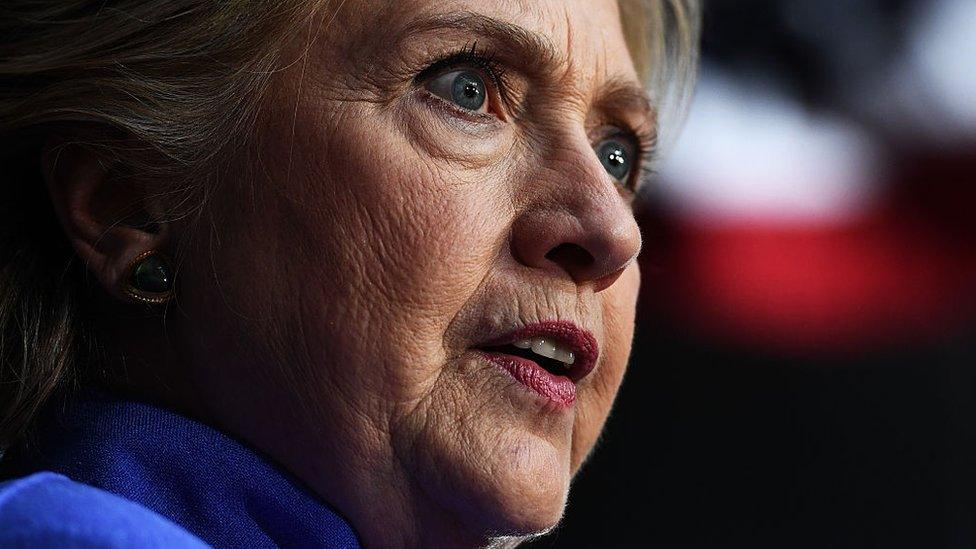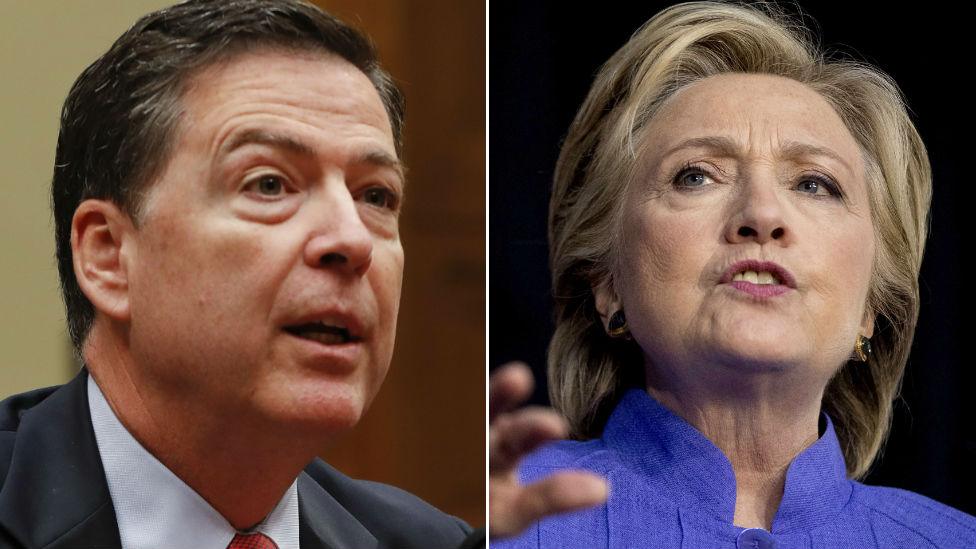America's 'rigged' election
- Published

Donald Trump tweeted that there would not be another day as good as last Friday.
In his view the announcement that the FBI was reviewing new material in the Hillary Clinton emails inquiry "changes everything". He called on his supporters to "prevent her taking her criminal scheme into the White House".
The mere fact that the FBI is looking at new material justifies, in Donald Trump's mind, his frequent references to "crooked" Hillary. It doesn't matter that so far there is more innuendo than fact.
The FBI has not even looked at the material, let alone been able to judge whether it is significant or produces new evidence that she was "careless" with classified information.
Trump believes it bolsters his narrative that Mrs Clinton is guilty of "criminal and illegal conduct" and is at the epicentre of a "rigged" system.
It means that if Mrs Clinton becomes president many will doubt her legitimacy. She will be tainted. Already some Republicans are promising further investigations even if she wins the presidency.

Some Clinton supporters are surprised that she has been unable to put the email question to rest
It should be noted that quite a few Democrats shake their heads in bewilderment that after all this time Mrs Clinton has not been able to put the email controversy to rest.
A few days ago I walked down a line waiting to access a Trump event. A surprising number of people thought there would be fraud, even though the elections are conducted on a state basis, many of which are controlled by Republicans.
What was more disturbing was the number who said they would not accept the result if Mrs Clinton won. It was not a majority but neither was it only one or two.
Among the Trump crowd she is not just disliked; it runs deeper, it borders on hatred.
The Republican candidate tells them she should be in prison and the crowd roars back "lock her up". If she is, as Mr Trump alleges, a "crook" then some ask if there is a duty to resist. Some of his supporters wear T-shirts with the slogan "trump that bitch".
What they will do with their anger if they do not get the result they want is difficult to gauge. On the fringes there is talk of resistance, of revolution. Some report people joining militias.
If Mr Trump loses, a heavy responsibility will fall on his shoulders. Will he accept defeat or encourage the view that the election was stolen and so shake the foundations of American democracy?

How did we end up with two such unpopular candidates?

There are sometimes legitimate questions after a vote. In 2004, John Kerry waited until the day after the election to concede, having wanted more detail on voting in Ohio. In 2000 there were long legal battles over the vote in Florida but, in the end, Al Gore accepted the court's decision.
But Mr Trump speaks of a wider conspiracy involving the media, international finance and corrupt politicians.
Mr Trump will be under huge pressure to accept the result. His problem is that his tone and language have been so harsh towards Mrs Clinton that congratulating a woman he had denounced as "crooked" and a "liar" would be very difficult.
The election has exposed a badly divided country with many voters uncomfortable with both candidates. Some talk of a need for healing but, for the moment, the virtues of bipartisanship and collegiality have been replaced by a dog-eats-dog, winner-takes-all politics.
When Mr Trump heard of the new FBI enquiry he opined that "maybe the system is not as rigged as I thought".
His critique changes if events move in his favour, but if he loses he has encouraged his supporters to doubt American democracy.
"Rigged" is a word loosely used but potentially dangerous.
- Published31 October 2016

- Published28 October 2016
- Published30 October 2016